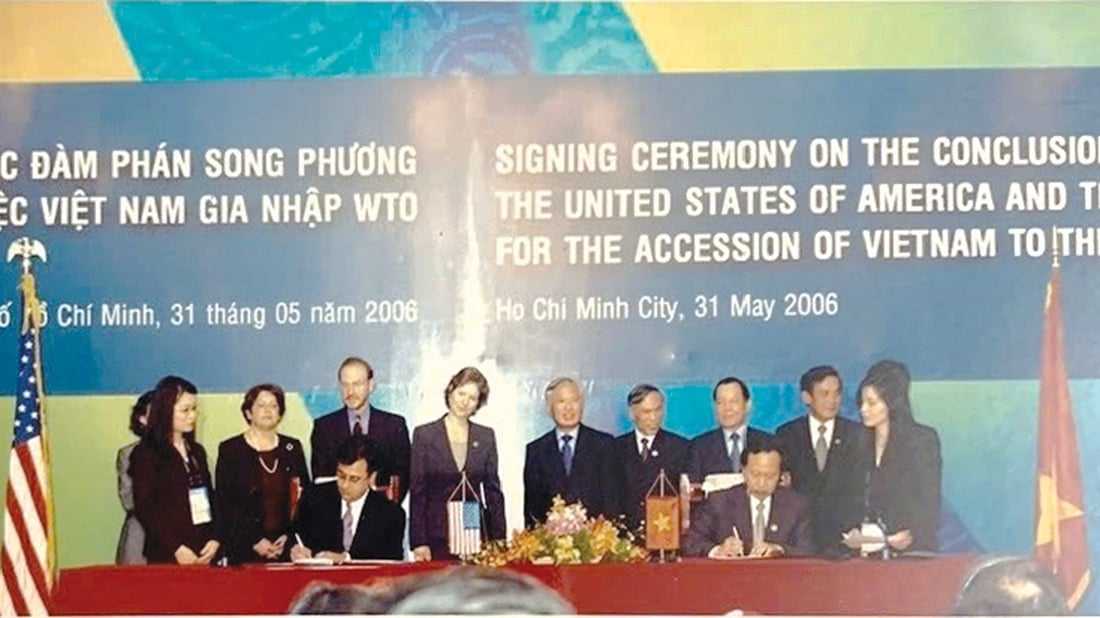
US Deputy Trade Representative Karan Bhatia and Vietnamese Deputy Minister of Trade Luong Van Tu signed the agreement concluding bilateral negotiations with the US on Vietnam's accession to the World Trade Organization (WTO) on May 31, 2006, in Ho Chi Minh City.
In November 1987, Mr. Luong Van Tu (former Deputy Minister of Trade) was fortunate enough to meet the First Vice Chairman of the Council of Ministers, Vo Van Kiet, who assigned him a special task: to normalize relations with Singapore and join ASEAN by all means.
"The circumstances at the time forced us to open up," Mr. Tu recalled, after the reunification of the country in 1975, when Vietnam was surrounded on all sides and subjected to a US embargo.
The country faced many difficulties; before it could recover from the war, it was hit by two more border wars in the North and Southwest, the economy fell into crisis, and inflation at one point reached over 700%, which, according to Mr. Tu, was "unimaginable".
Along with the open-door policy, the Law on Attracting Foreign Investment in 1987 was enacted to realize Vietnam's readiness to befriend all countries in the world. Mr. Tu said that normalizing relations with Singapore and promoting negotiations for Vietnam's accession to ASEAN would help balance relations with other countries, creating a comprehensive counterweight.
Therefore, through diplomatic relations, in his role as the head of Vietnam's representative office in Singapore, Mr. Tu arranged many visits for high-ranking Vietnamese leaders to Singapore to promote and realize the assigned tasks.
In particular, the visit and working trip of Minister of Trade Le Van Triet with Minister of Industry and Trade Lee Hsien Loong; and the visit of Chairman of the Council of Ministers Vo Van Kiet in 1991 marked the normalization of relations between Vietnam and Singapore, as well as opening the door for Vietnam to join ASEAN, officially joining the organization in 1995, laying the groundwork for Vietnam to normalize relations with the United States.
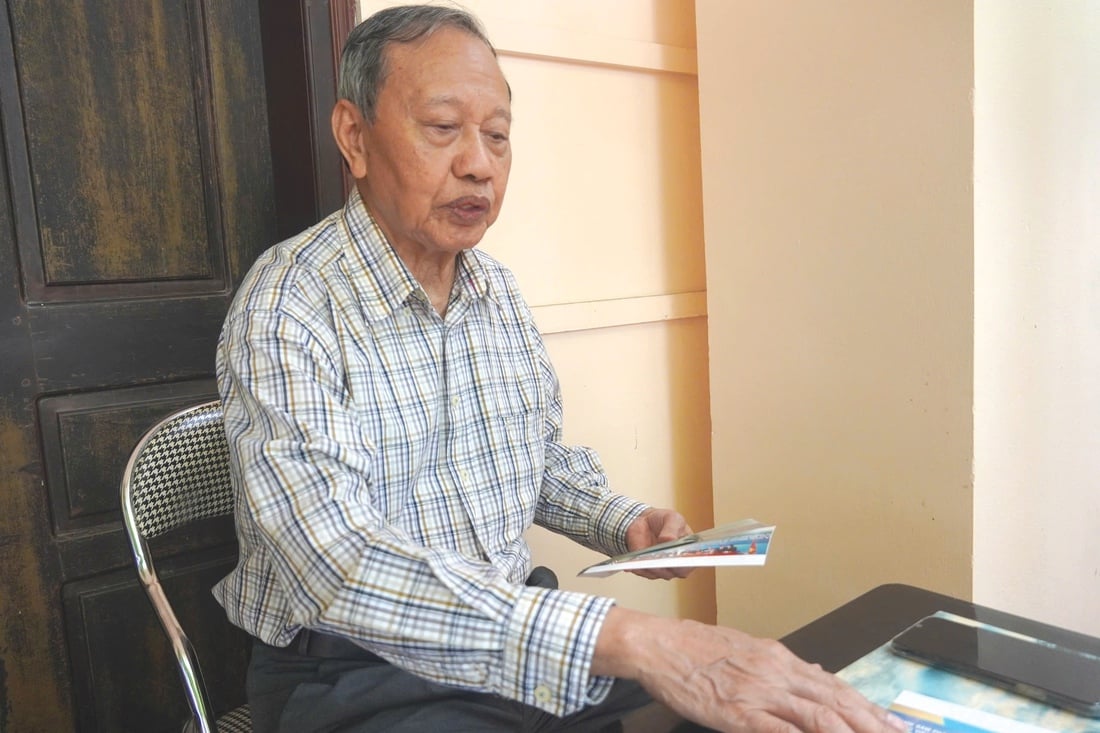
Mr. Luong Van Tu shared commemorative photos taken during the negotiation period.
The longest integration negotiations
* Joining ASEAN and normalizing relations with the US opened up opportunities for Vietnam to negotiate accession to the WTO – marking the beginning of international economic integration. As the head of the negotiating team, what do you remember most?
- To date, WTO negotiations remain one of the longest-running international economic integration negotiations. They spanned three terms of prime ministers, deputy prime ministers, and three ministers of industry and trade. We negotiated with 149 countries and territories, went through 200 intense sessions of debate, and answered 3,316 questions regarding Vietnam's policy mechanisms and legal system amendments.
The major issue was that negotiations had to be linked to amending domestic laws to align with the new situation and WTO regulations. This was especially true given the pressure from the US demanding legal amendments. To negotiate effectively, we committed to amending 29 laws, but in reality, due to the demands of reform, we had to amend 110 laws and ordinances to conform to the socialist-oriented market economy.
Because our laws are fragmented, the National Assembly only amends 5 laws each year, leading some foreign experts to say it will take Vietnam about 20 years to complete the reform of its legal system. Foreign media reports this information, further increasing pressure on us.
In 2004, the US expressed its willingness to help Vietnam create a "master law" (a law to govern other laws). I asked, "How long would it take to create a master law?"; the US replied that it would take two years, but I think if Vietnam were to do it, it would take up to four years.
That could cause us to miss opportunities. Therefore, I propose amending Article 8 of the Law on International Treaties, meaning that if international commitments take precedence over domestic law, then international commitments shall prevail. With this proposal, the US side agreed, and we both had time to amend the law later and had an opportunity to negotiate.
As a result, negotiations with the US concluded in Ho Chi Minh City on May 31, 2006, with the US lifting the Jackson-Venick embargo and granting Vietnam permanent normal trade rights.
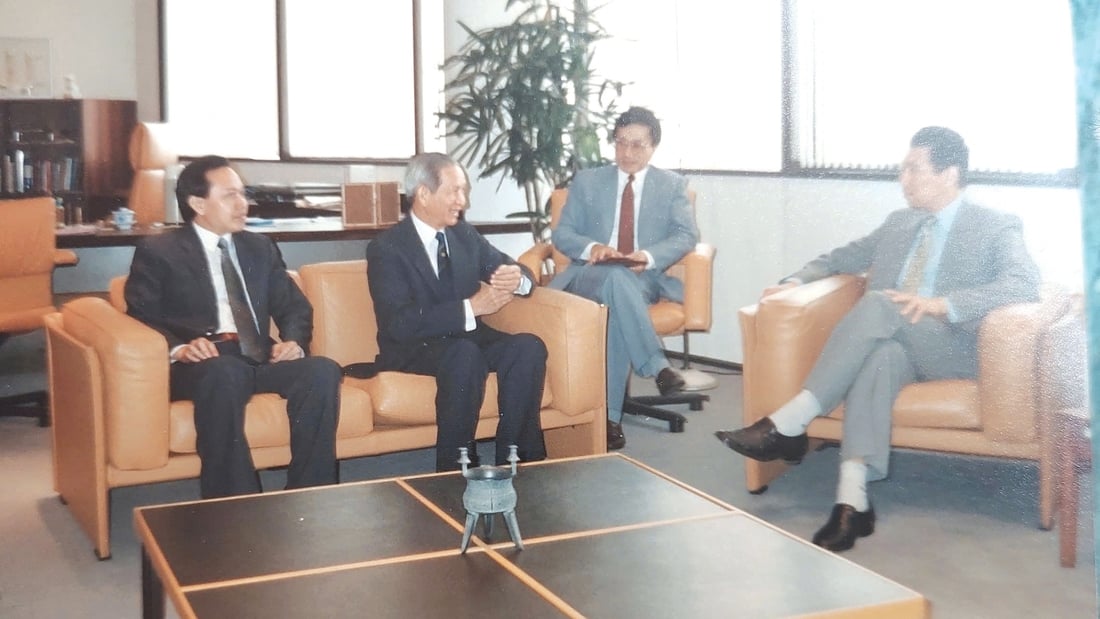
On October 3, 1991, Minister of Trade Le Van Triet met with Singapore's Minister of Trade and Industry Lee Hsien Loong to discuss inviting Chairman of the Council of Ministers Vo Van Kiet to visit and normalize diplomatic relations between the two countries.
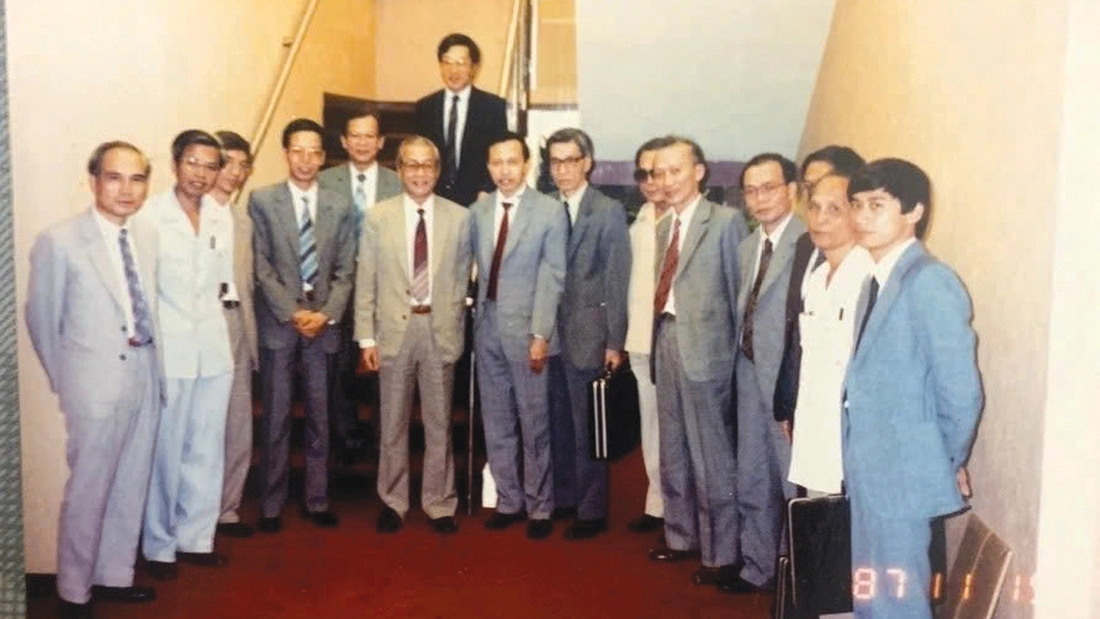
Mr. Luong Van Tu welcomed Mr. Vo Van Kiet in his capacity as a government leader to normalize diplomatic relations with Singapore.
* Besides the intense intellectual battles, did the demand for opening up and negotiating WTO membership immediately after the war cause any domestic concerns, sir?
- While the 200 negotiation sessions with partners were intense intellectual battles, domestic "negotiations" also faced considerable pressure, especially the sessions of explaining the situation to ministries, localities, associations, and businesses in the industry.
Therefore, the challenge is to ensure ideological clarity, awareness, and a unified perspective within the Party regarding international economic integration. We regularly meet with deputy ministers from various ministries and agencies to share information and agree on what areas we will open up to and to what extent we will commit.
In addition, at the monthly briefings of the Central Committee's Ideology and Culture Department, I am responsible for informing and reporting to the editors-in-chief of newspapers and media outlets about the negotiation process and the opportunities and challenges facing Vietnam in each field and sector.
Every month I exchange information and work with Party committees, the National Assembly, the Standing Committee of the National Assembly, and especially the Chairman of the Foreign Affairs Committee, Vu Mao, to inform and emphasize the urgent need to amend the law, not only to help us join the WTO but also for internal reform.
We also went around mobilizing veteran revolutionaries. At that time, there were three organizations: the Veterans Association, the Thang Long Club, and the Bach Dang Club – veterans who had sacrificed and contributed to the independence and freedom of the country, so they were very interested and worried about joining the WTO.
Determine the opening schedule.
* What is the international public opinion and the views of external organizations regarding Vietnam's negotiations? Do they believe we will succeed?
- External pressure is equally intense. Many countries and organizations consider us a bureaucratic, centrally planned, subsidized economy, a socialist economy incompatible with a market economy. One journalist asked: "A market economy with a socialist regime is like oil and water; if we integrate, how can we dissolve?"
I chose to answer, "Even though it's oil and water, both are liquids, and neither has any limits," and received applause from the entire audience.
Or, during negotiations with the US, there was also a very challenging question: "If the US Congress approves the atomic bombing of Khe Sanh, what would you think?"
I calmly said, "It's fortunate that the US Congress didn't approve the atomic bombing of Vietnam, because if they had, I think we wouldn't be here today."
Upon joining the WTO, we drafted a Politburo resolution on proactively integrating into the international economy (later Resolution 07/2001), outlining the principle of both cooperation and struggle, emphasizing that we cannot simply go along with whatever is said or done.
We identified three main objectives for integration: access to global markets, goods, and services; attracting capital and technology; and learning market economy management skills. With this resolution, we boldly proceeded with all necessary steps to realize our goal of negotiating and joining the WTO.
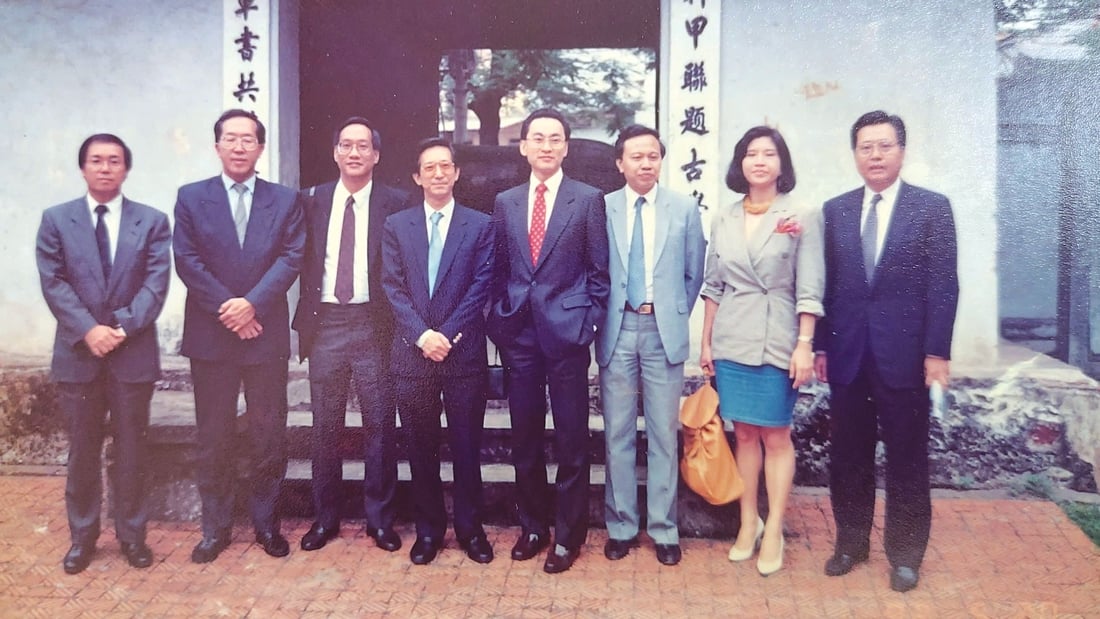
The first delegation of Singaporean businesses visited and worked with the Committee for Cooperation and Investment. Afterwards, they visited the Temple of Literature and took commemorative photos on September 28, 1993.
* With demands for market opening while protecting domestic production, coupled with pressure from partners, how will the negotiating team resolve these conflicting factors and find a balance?
- During negotiations, other countries demanded that we open our markets to the maximum extent possible. But it's crucial that we study the resilience of our economy and each sector. We need to determine how much we should open up to ensure our survival and development.
For example, regarding the opening of the dairy market, I worked directly with Ms. Lien (General Director of Vinamilk), raising the issue that Vietnam has dairy factories, and if the market were to be opened, to what extent should it be, and how should taxes be reduced so that businesses could withstand the pressure?
Industry associations and businesses are consulted and contribute to the roadmap for reopening, tailored to each sector. This helps determine which sectors will reopen first, which will reopen gradually, and which will reopen immediately, rather than making a general decision.
There are important sectors that are required to apply quotas for a certain period. Or there are sectors that we absolutely refuse to open up, such as the distribution of gasoline and tobacco, or the banking sector which is only opened to a limited extent, no more than 25%, while the telecommunications sector is the most open.
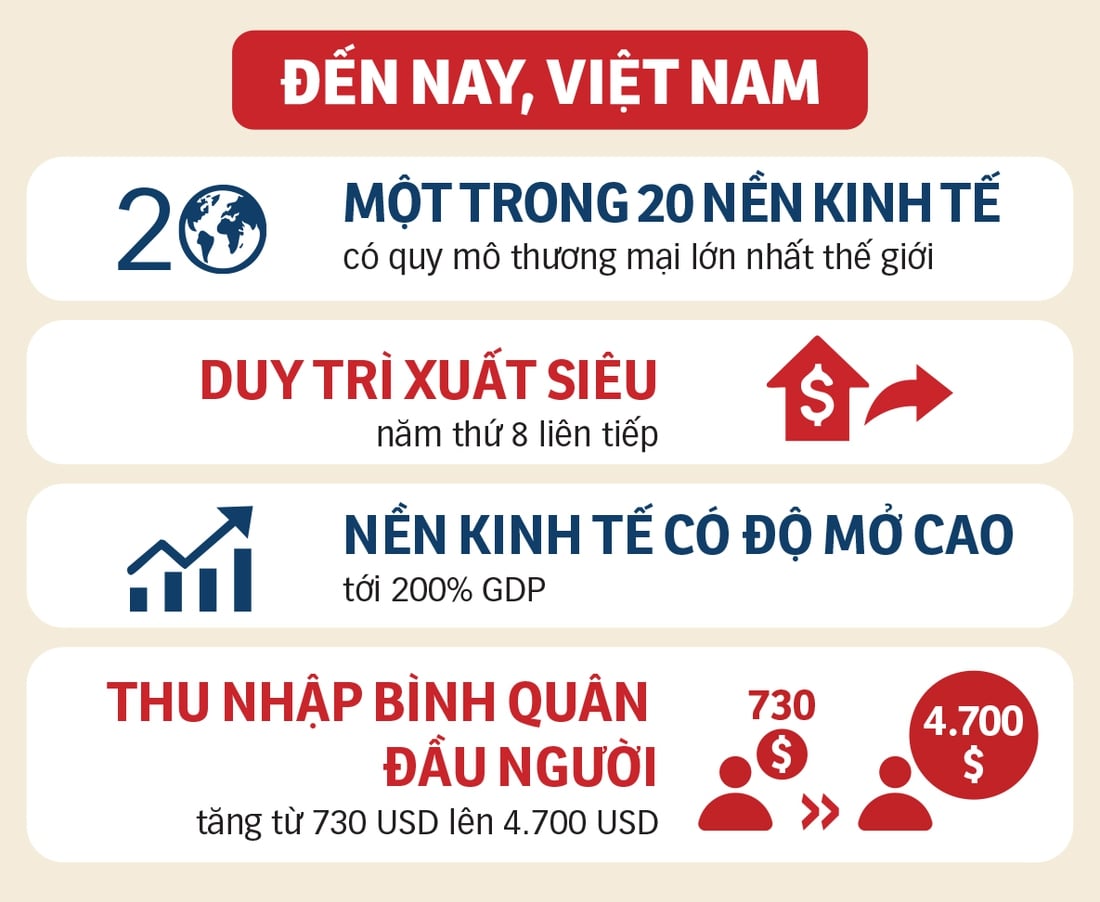
Graphics: TAN DAT
Humanity never rejects what is good.
* Which session was the most tense for you, requiring the most negotiations?
- The most intense negotiations were with the EU, the US, and China. China demanded the opening of its road transport market, even though the WTO has no regulations on this; and it also demanded the opening of its banking market, which is an underdeveloped market.
With the US, negotiations lasting all night are normal, or even involve multiple rounds of talks. Sometimes, negotiations reach an agreement, but then the next session changes the negotiators, negating all the results of the previous session, forcing us to renegotiate. In many areas, they want us to open up as much as possible, but Vietnam cannot accept that, and we strive to maintain a consistent stance throughout the sessions.
For example, in the textile and garment industry, this is our advantage, but the US wanted to impose quotas while the WTO does not have quotas. They even requested the establishment of an organization to monitor and verify Vietnam's implementation of its commitments, which we firmly disagreed with. I remember spending several nights "arguing" with them in Washington, achieving the desired results, and the final round of negotiations took place in Ho Chi Minh City on May 31, 2006.
But achieving that result was not simple either. Along with negotiations, there was a process of lobbying American textile and apparel industry associations to promote cooperation, so that they could then lobby US senators to have a voice; actively working with Boeing, and several major automotive distributors, businesses that had good relationships with the then-US president.
We also opened the market to American life insurance companies in Vietnam, but requested that they lobby political figures in the US to express support for Vietnam's textile and garment industry so that when we have jobs and income, we will buy insurance. Thanks to this, we achieved the desired results.
* The achievements of the WTO are undeniable, and Vietnam has increasingly participated in new-generation FTAs. To take advantage of the opportunities from economic integration, what advice do you have?
- The achievements brought about by joining the WTO and FTAs are the result of the correct integration policies of the Party and Government; the decisive implementation by ministries and sectors, and especially the contributions, perseverance, intelligent and creative negotiations of all members of the negotiating team.
The National Assembly has concluded that joining the WTO was crucial and fundamental, opening up opportunities for other international economic integrations. We now have access to a global market, a legal system that is constantly being revised and perfected to suit a socialist-oriented market economy, and the ability to attract foreign investment and technology. Businesses are abandoning the mindset of dependence on the State and becoming more self-reliant in production.
To date, Vietnam is one of the 20 largest trading economies in the world, maintaining a trade surplus for the eighth consecutive year, maintaining a highly open economy of up to 200% of GDP, and per capita income increasing from $730 to $4,700.
However, there are still things that concern me. The pace of development of Vietnamese businesses is not yet balanced. Technology transfer remains slow, and the development of the domestic market is still limited.
I remember in 1990, when I flew to Taiwan (China) to introduce the Investment Law, a journalist asked: "Are there private businesses in Vietnam?" At the time, I thought that if I answered "yes," I would violate regulations, but if I said no, other countries wouldn't cooperate.
Therefore, I chose to respond by rephrasing the question: "So what are the advantages of private businesses?" and received the answer that private businesses are more dynamic, have lower management costs, are highly competitive, and create more jobs. In response, I simply stated: "Humanity never rejects what is good."
Recently, with Resolution 68 on the development of the private economy, or Resolution 57 on promoting innovation, science and technology issued by the Politburo, I hope that it will create genuine conditions for domestic enterprises and the private economy to develop.
In fact, WTO reports indicate that after COVID-19, there were as many as 3,000 new trade barriers, ushering the world into a new phase of trade. Therefore, in addition to enhancing the capacity of the economy, the core element is private enterprises.
We also need to continue maintaining a policy of deep integration, focusing on actively integrating with emerging economies, prioritizing the BRICS bloc, in order to take advantage of and open up new opportunities.
In 1995, we normalized diplomatic relations with the US, and in 2000, the Vietnam-US Bilateral Trade Agreement (BTA) was signed. However, it wasn't until the conclusion of WTO negotiations in 2006 that the Permanent Normal Trade Relations (PNTR) status was approved by the US, marking a major step forward in normalizing trade relations between the two countries.
Source: https://tuoitre.vn/hau-truong-dam-phan-wto-chuyen-bay-gio-moi-ke-20250828101059975.htm








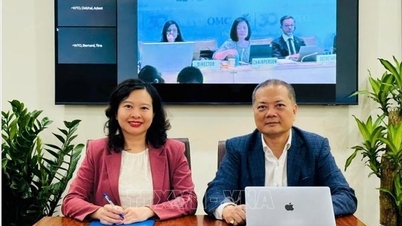

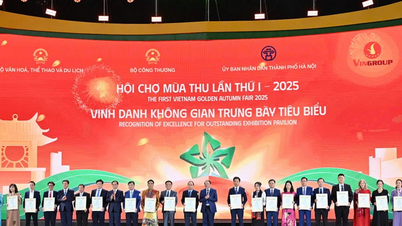



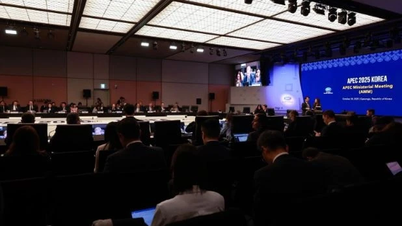

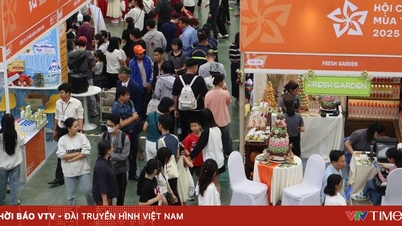
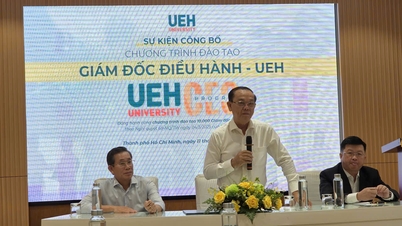



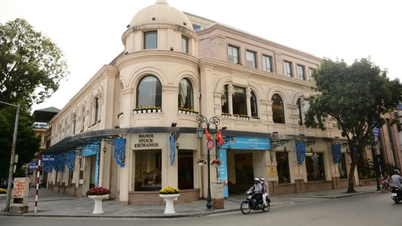

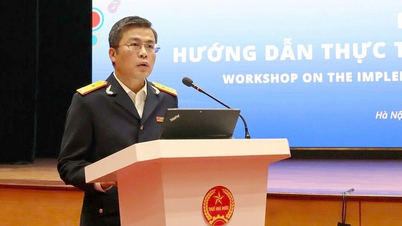
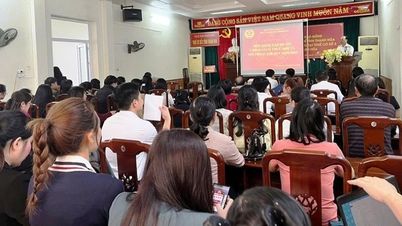
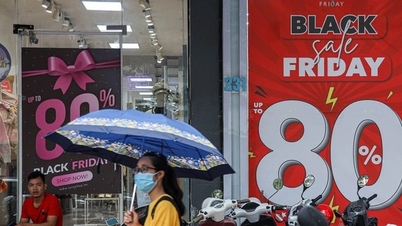






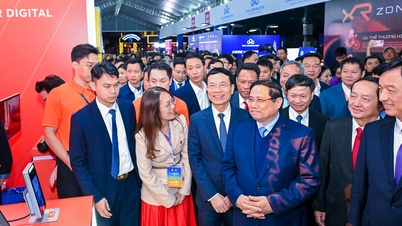
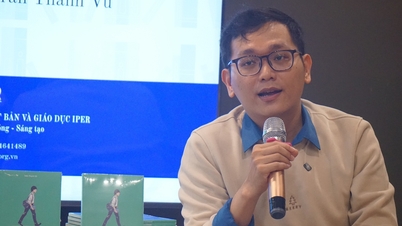





































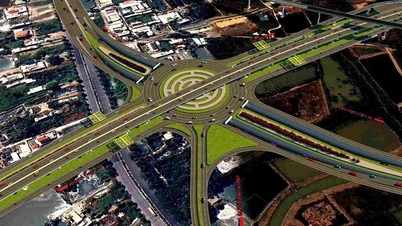
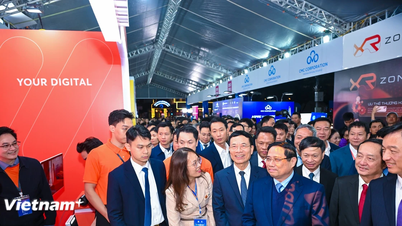
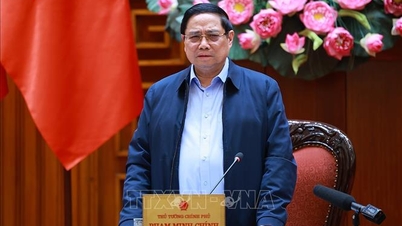
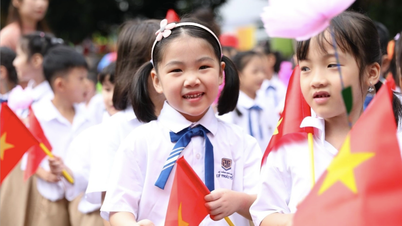



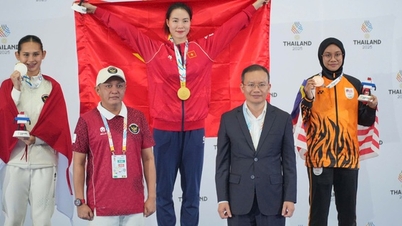

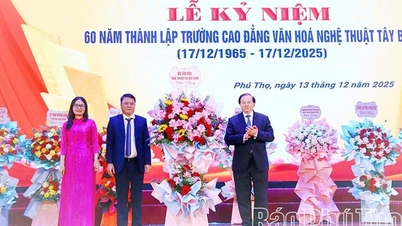
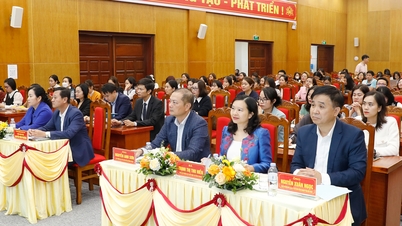

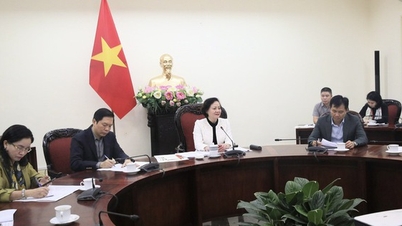
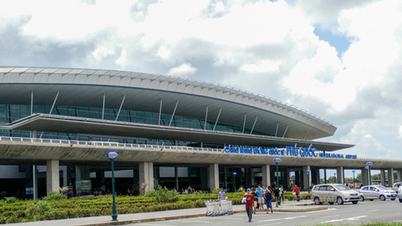
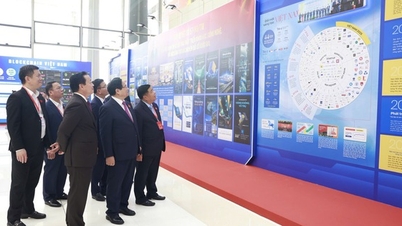
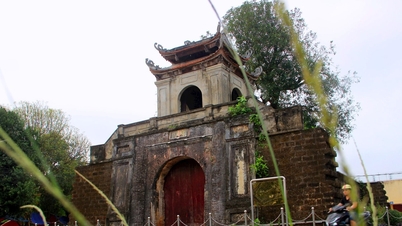

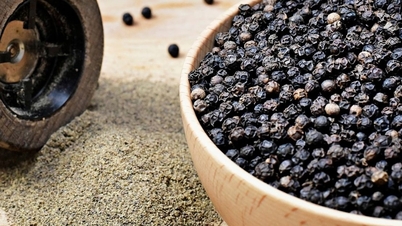
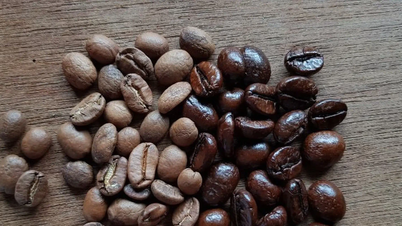
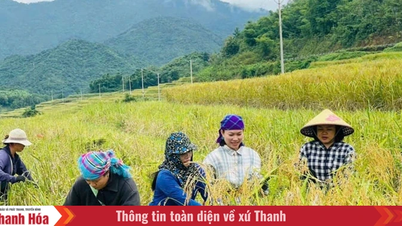

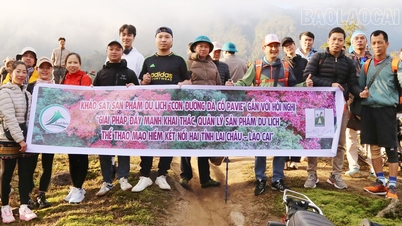

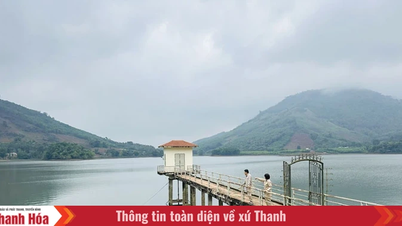











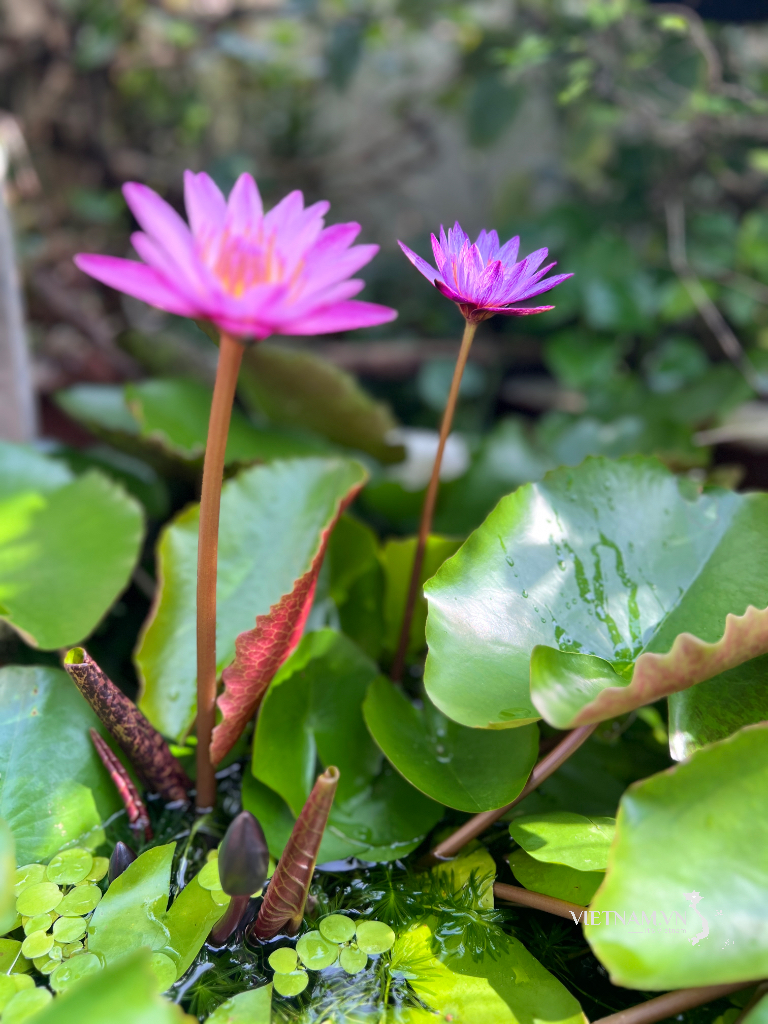
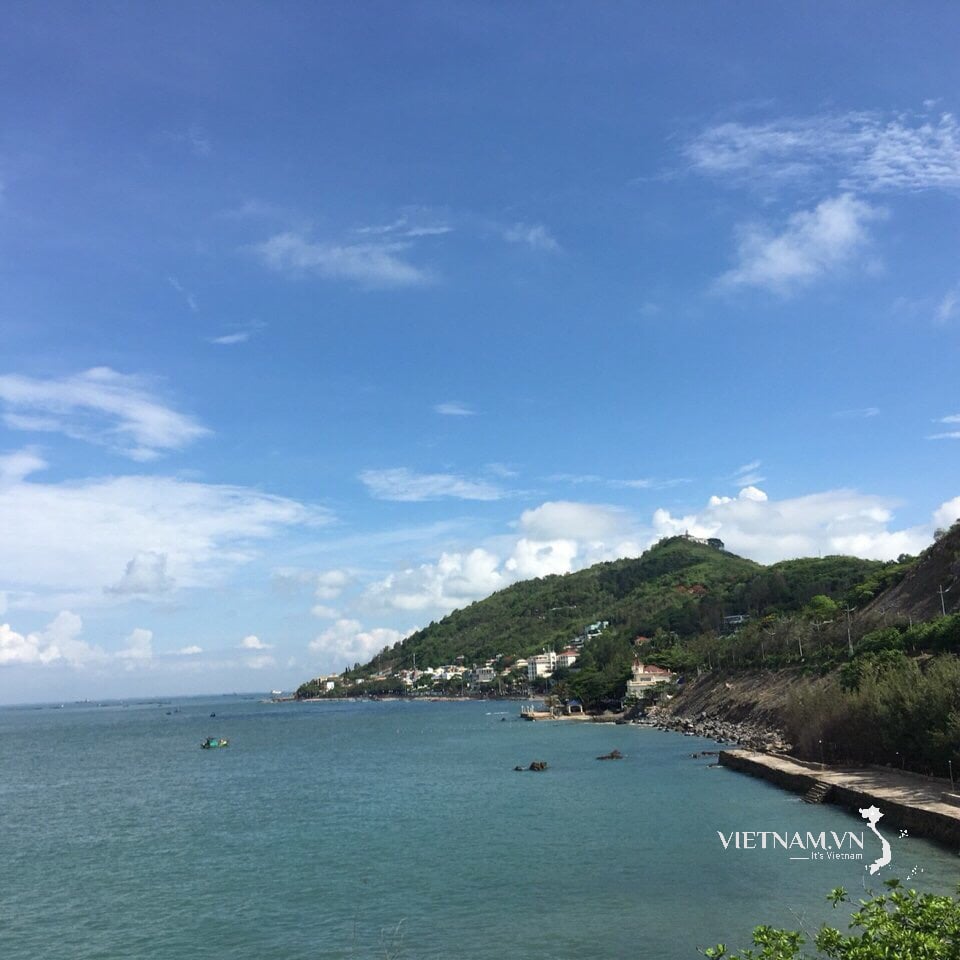

Comment (0)